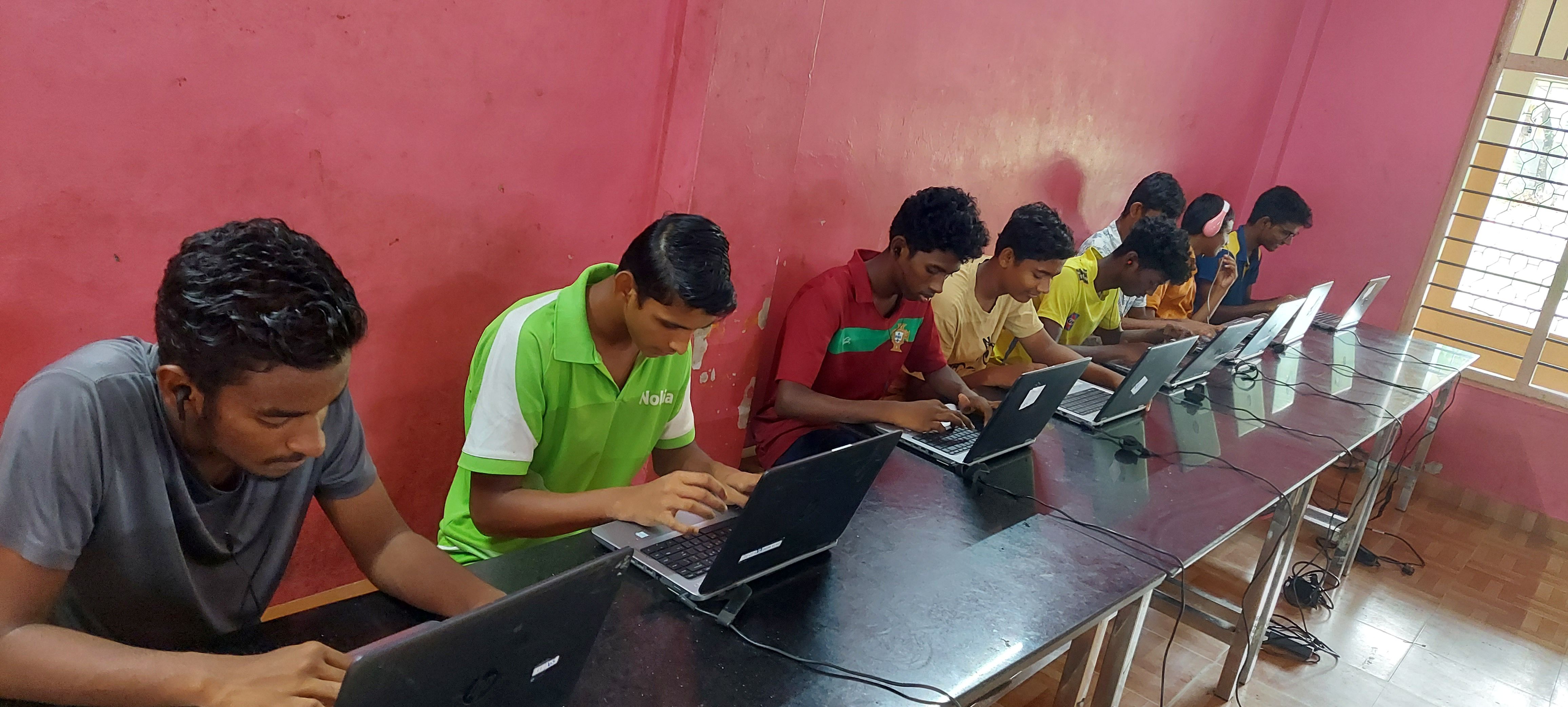
Our structure and governance
We have optimised the use of energy across our offices through:
- Motion sensors in meeting rooms and cabins to automatically switch off the lights when they are not in use
- LED lights to optimise electricity consumption
- Energy-efficient air conditioning and sensor-based taps and tissue dispensers
- Insulated water lines to prevent heat loss
Consistent with our low-carbon IT strategy, we continue to replace old laptops with energy-efficient models and plan to do the same with LED monitors as well.
We have also extended our laptop leases, reduced the number of printers in our offices and migrated on-premises servers to cloud/virtual ones.
In addition, our ISO 14001:2015 - Environmental Management System (EMS) certification, which we received in August 2022, provides a framework for establishing, implementing, maintaining and improving our environmental performance.
87% of our offices are LEED-certified
India, with over 4,400 LEED projects covering 2.85+ billion square feet, is among the top three countries for LEED outside the US1
Most of our offices are housed in LEED-certified buildings. This is also an important criterion in the acquisition of new offices.
In line with KPMG’s global commitment of transitioning to 100% renewable electricity by 2030 across its network, in FY22, we procured 100% renewable electricity through accredited renewable energy certificates (I-RECs) from small hydro and solar projects.
Additionally, our sustainability initiatives include investing in CNG captive/back-up power generation at select offices, installing sun-protected films on windows and scheduling lighting levels.
We will continue to work with our real estate partners for procuring green energy and explore the implementation of energy-efficient measures, including solar panel installations and smart metering.
Recognising that technology can help in reducing business travel, we plan to:
- Introduce a sustainable travel policy
- Circulate regular air travel reports to business units
- Develop an air travel dashboard for the firm and each business
- Optimise non-client travel emissions
- Explore partnerships with environmentally conscious, LEED-certified hotels for events and accommodation
Embracing greener employee commuting alternatives
As part of our Employee Benefits initiatives, we offer subsidised travel options to our people for commuting to work.
As an environmentally responsible organisation, we have transitioned 5% of our fleet to EVs, while 40% runs on CNG. We encourage our people to carpool and adopt the hybrid working model to reduce the impact on the environment.
We also encourage our people to adopt sustainable practices at work and at home, including using electric vehicles (EVs). To enable this, we are undertaking several steps, including the supply of EV-charging infrastructure, proposed to be made available through our property partners.
A carpooling app is planned to promote ridesharing and help take vehicles off the road.
KPMG International reports annually to CDP (formerly known as Carbon Disclosure Project) on its collective performance and management of climate-related issues.
In FY22, KPMG in India joined KPMG International in CDP’s Supply Chain Programme. Since then, we have identified our largest suppliers based on spend. Our current priority is to engage with suppliers to identify opportunities to reduce the carbon impact of our supply chain, encouraging them to take affirmative carbon actions.
As future steps, we plan to implement a Sustainable Procurement Process to identify vendors, service providers and partners who prioritise sustainability.
We look to minimise waste, promote reuse of resources and source raw materials sustainably. Our circularity initiatives include:
- Waste segregation
- Use of biodegradable garbage bags
- Disposal of e-waste, UPS batteries, office lighting and wastepaper through authorised recycling vendors
- Use of recycled paper and water
- Elimination of single-use plastic
- Use of double-sided printing
Our Mantra: Reduce, Reuse and Recycle
As part of our commitment to becoming net-zero by 2030, we have introduced an internal carbon price to operationalise sustainable behaviour.
Our ICP will be used for funding activities that reduce our carbon footprint, such as purchasing renewable energy certificates or creating a carbon dashboard for our businesses to encourage behavioural change, among others.

As part of our circularity initiatives, we donated our re-usable laptops to help an NGO set up an English language centre for underserved youth.
We continue to create awareness around our personal and professional impact on the natural world. Therefore, we encourage and empower our people to engage in projects and activities that make a positive impact on the environment.
Our socioenvironmental initiatives include:
- Organising regular visits to eco-parks and nature trailsfor students
- Sensitising students on climate change and sustainable living through nature clubs at our partner NGO schools
- Advocating the importance of waste management and segregation in schools
- Promoting important occasions such as World Environment Day, World Conservation Day and Earth Hour
- Organising tree plantation drives (our colleagues have planted several thousand trees since 2019)
- Delivering community awareness sessions on making the ‘best out of waste’
- Supporting rainwater harvesting to counter the effects of urbanisation and groundwater depletion
- Exploring biogas as a decentralised solution for biodegradable waste
Impact beyond the workplace
Mangroves play a vital role in maintaining ocean health and inland habitation. KPMG in India volunteers led a mangrove planting drive at a beach in Kochi with a view to prevent soil erosion, protect fresh water and create a natural carbon sink. Wide-scale implementation of such plantations can improve rain patterns and temperatures in the years to come.
Our journey to net-zero is incomplete without our clients. Therefore, we work with them to help them become more environmentally responsible by making the right choices. Every day, we leverage the expertise of KPMG professionals to help our clients reduce their carbon emissions, transition to renewable energy and integrate climate risk into their corporate strategies.
1 Unlocking the “Hard to Abate” Sectors | World Resources Institute (wri.org)
2 Decarbonizing hard-to-abate industries | Siemens Energy Global (siemens-energy.com)
3 A Corporate Accounting and Reporting Standard, REVISED EDITI




